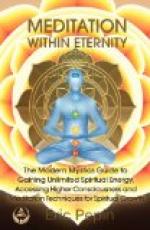“If I should gain the way of emancipation, then shall I never need to put away my kindred, to leave my home, to sever ties of love. O grieve not for your son. The five desires of sense beget the sorrow; those held by lust themselves induce sorrow; my very ancestors, victorious kings, have handed down to me their kingly wealth; I, thinking only on eternal bliss, put it all away.”
The meaning here conveyed is simple enough to understand. From a long line of ancestors who had ruled with the unquestioned authority of Oriental monarchs, the young prince felt that he had inherited much that would retard his soul’s freedom. The examples of kings and emperors who have abandoned their possessions have been too few to cause us to believe that they have held these possessions as naught.
Through rivers of blood; through ages of despotism, and self-seeking, kings and emperors have maintained their vested rights bequeathing to their progeny the same desires; the same covetousness of worldly power; the same consideration for the lesser self; the same hypnotism that takes account of caste.
To escape from these fetters of the soul, into a realization of the Eternal Oneness of life, was no easy task for the inheritor of such desires and beliefs and appetites as an ancestry of rulers imposes.
And Prince Siddhartha was anxious to escape reincarnation—a theory or conviction inseparable from Oriental religion.
His reference to “fickle affection” means literally that selfish affection of the parent, which would retain the fleeting joy of a few short earthly years of companionship, while the larger and more perfect love would bid the child seek its birthright of godhood. The word “fickle” here would more properly be translated transitory.
Buddha’s desire to escape from a continuous round of deaths and “leave-takings from kindred,” does not necessarily imply an absorption into The Absolute; it may as logically be interpreted to mean, that liberation from the hypnotisms of externality (mukti) insures the possession and power of the gods—power over physical life and death, and this power need not mean a cessation from individual consciousness, but rather, a full realization of individual unity with the sum of all consciousness.
There is another mistaken interpretation of the means of attainment of that state of liberation, which has been alluded to in so many varied terms. The fact that Buddha, like many of the Oriental Masters, sought the seclusion of the forest; the isolation, and simplicity of the hermit,—has given rise to the belief, almost universally held among Oriental disciples, that liberation from maya, the delusions of the world, can not be attained save by these methods.




